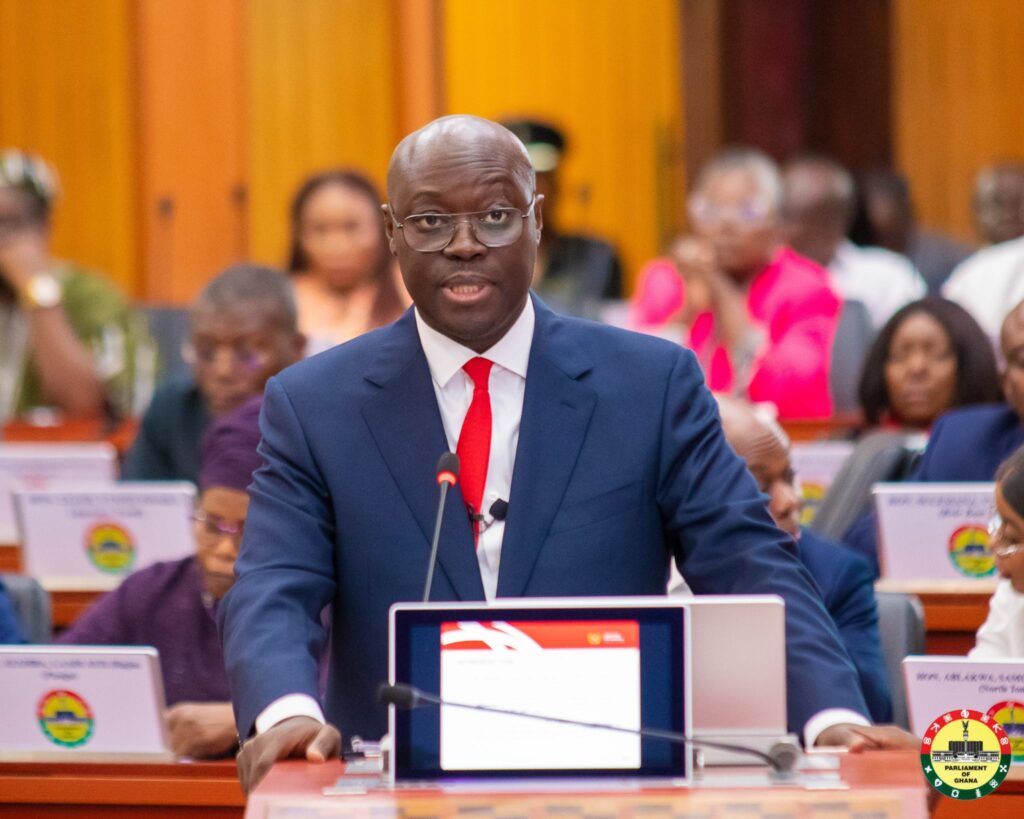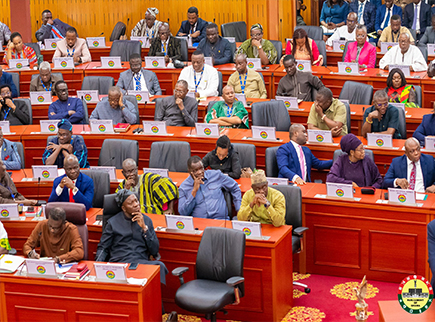The government has announced a comprehensive Value Added Tax (VAT) reforms that will abolish the COVID-19 Health Recovery Levy and reduce the effective VAT rate from 21.9 to 20 per cent.
The VAT reforms cover four other major tax systems, including the abolishment of the decoupling of Ghana Education Trust Fund (GETFUND) and National Health Insurance Levy (NHIL) from the VAT tax base, allowing both levies to be subject to input tax deductions.
The rest are elimination of VAT on reconnaissance and prospecting of minerals, increase of VAT registration threshold from GHS200,000 to GHS750,000 and extension of VAT zero-rating on locally manufactured textiles to 2028.
Dr. Cassiel Ato Baah Forson, the Minister of Finance, disclosed this during the presentation of the 2026 Budget Statement to Parliament on Thursday, noting that the reforms would save businesses and households an estimated six billion Ghana cedis.
He said the government conducted a detailed analysis and engaged in broad consultations with stakeholders, after several months, leading to the completion of the design of a modernised VAT system fit for Ghana’s economic transformation agenda.
Dr Forson noted that the reforms would also reduce the cost of doing business by five per cent by subjecting the GETFund and NHIL to input-output deductibility, saying: “These VAT reforms will make Ghana a more business-friendly economy and create the opportunity for business expansion and more jobs.”

Speaking on sector specific impact of the reforms, he explained that removing VAT on mineral exploration and reconnaissance would revive investor confidence, stimulate greenfield activity, and ensure the long-term sustainability of the country’s mining sector.
“This measure will promote responsible mining and help to mitigate the haphazard mineral prospecting that degrades our forests and water bodies, while reversing the trend of Ghana earning little investment in minerals exploration over the past two decades,” he said.
The reforms would also benefit the domestic textile industry, the finance minister said, pledging the government’s support to them through fiscal initiatives to enhance their capability to expand.
Dr Forson said the government would deploy electronic and digital solutions to improve VAT administration, and that “we are not only seeking to change the policy and legal framework of the VAT regime.”
He explained that the current VAT system’s distortions had negatively impacted overall welfare, increased tax burden and significantly reduced VAT compliance, and pledged reforms to make the system support both business growth and fiscal stability.
Dr Forson said: “The storm has passed. The foundation is firm. The horizon is bright. Together, under the visionary leadership of President Mahama, the nation builder, we are building the Ghana We Want, a Ghana that works for all, thrives in peace, and stands tall once again as the beacon of Africa’s renewal.”

